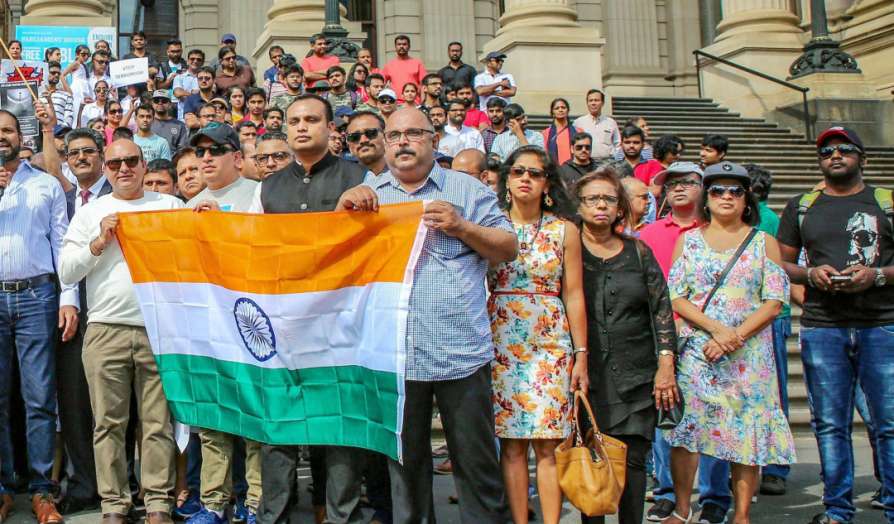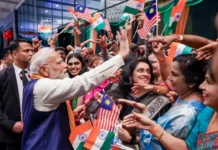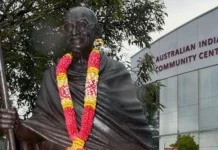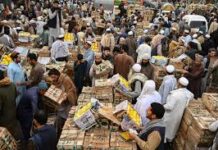WASHINGTON: Observing that Indian diplomatic missions struggle to help their nationals due to lack of funds, an eminent NRI has called for involving the diaspora community, the ICWF and other renowned organisations and individuals for the speedy financial assistance to distressed overseas Indians.
The Indian Community Welfare Fund (ICWF) was set up in 2009 to assist overseas Indian nationals in times of distress and emergency in the ‘most deserving cases’ on a ‘means tested basis’.
In 2017, the Indian government decentralised the decision-making process empowering embassies and consulates to take permission from New Delhi for every disbursement of fund.
Given that the ICWF is generated purely from contribution USD 2 for every passport application and USD 3 for The Overseas Citizenship of India or visa application only large diplomatic missions like those in the US and the UK have enough resources to meet the increasing demand of the Indian citizens in distress.
But those, like the victim of massive fire in a factory in Sudan that killed 20 Indian workers, are unable to quickly help and use ICWF as the size of the fund is not large enough to help Indian citizens in distress, said New York-based Prem Bhandari, who for has been involved in helping Indians in distress for many years.
“Had the Indian mission in Sudan had a larger ICWF fund, the Indian workers, coming from poor families, would have got quick and adequate financial compensation,” said Bhandari, who worked with the Indian mission in Sudan to get the dead bodies back to India.
“I urge the Indian government that the NRIs and Indian Diaspora community be allowed to contribute generously to this fund,” Bhandari said, adding that he has taken up the issue with the Ministry of External Affairs.
“This would reduce the financial burden on the government and help diplomatic missions to take speedy decisions and not delay in assisting Indians in distress due to lack of fund,” said Bhandari, who heads Jaipur Foot USA and has interacted with the people of Indian-origin and Indian citizens in distress in several parts of the world.
He said he has also urged the Center to involve eminent diaspora organisations and individuals just like parent’s teachers associations in schools on a voluntary basis in the management and oversight of the ICWF.
The ICWF, as of now, assists in distress situations like air passage to India to stranded Overseas Indian nationals, legal assistance to those who have committed minor crimes; legal and financial assistance to Indian women abandoned, cheated or abused by their spouses, transportation of mortal remains and expenditure or emergency medical care.
The fund is also used by missions on promoting Indian culture, payment of honorarium for teachers/faculty teaching Indian languages, art forms and welfare activities for Indian students, issues faced by Indian students, including their visa, residence status.
It can also be used by missions for hiring of additional staff for rendering various consular services; hiring vehicles on a need basis for visits to jails, police stations; detention centres; labour camps; welfare camps; shelters for distressed Indians; prisons; hospitals; morgues and to airports for deportation/repatriation of distressed Indian nationals.
ICWF can also be used for setting up 24×7 toll-free helplines, walk-in resource centres for providing information, advise, guidance on problems faced by distressed Indian nationals; and helping them register their grievance with the Mission/Post.
According to the last annual report of the Ministry of External Affairs, around 1,700 distressed Indian workers of Kuwaiti company Kharafi national were also extended assistance through the fund.
Since its inception, there are over 130,000 beneficiaries of the fund. Around 90,000 Indian nationals have benefitted from the fund since 2014. “But this number can be much more and much quicker,” Bhandari said. In 2011, the ICWF fund was used to help two Indian nationals who were held hostage for 20 days in China, he said. PTI







